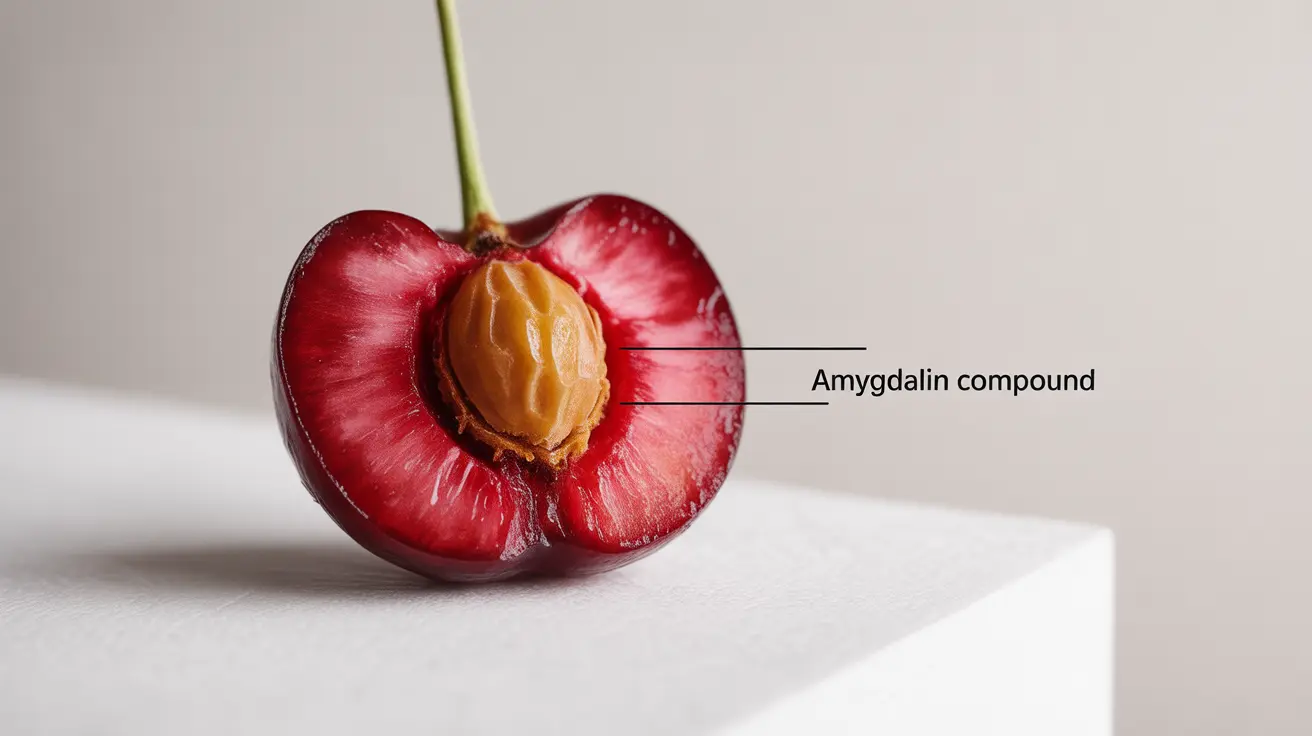While cherries are a delicious and nutritious fruit, their pits contain compounds that can be potentially harmful to humans when consumed incorrectly. Understanding the risks associated with cherry pits is crucial for safe consumption of this popular fruit, especially since accidental ingestion of pits can occur while eating cherries.
This comprehensive guide examines the toxicity of cherry pits, explaining when they become dangerous, potential health risks, and what to do in cases of accidental consumption. We'll explore the science behind cherry pit toxicity and provide clear safety guidelines for both adults and children.
Understanding Cherry Pit Composition and Toxicity
Cherry pits contain a compound called amygdalin, which converts to hydrogen cyanide when crushed or chewed. While whole, intact pits passing through the digestive system generally pose minimal risk, damaged or broken pits can release potentially harmful substances.
The hard outer shell of cherry pits actually serves as a protective barrier, preventing the release of toxic compounds when the pit remains whole. This natural defense mechanism explains why accidentally swallowing an intact pit typically doesn't cause health concerns.
Toxic Potential of Crushed vs. Whole Cherry Pits
The distinction between swallowing whole pits versus chewing or crushing them is crucial for understanding potential dangers:
- Whole pits: Generally pass through the digestive system without releasing toxic compounds
- Crushed or chewed pits: Can release hydrogen cyanide, potentially causing adverse effects
- Ground pits: Present the highest risk due to maximum compound release
Recognizing Cyanide Poisoning Symptoms
If someone has consumed crushed or chewed cherry pits, it's important to watch for these potential symptoms of cyanide exposure:
- Headache and dizziness
- Confusion
- Difficulty breathing
- Rapid heart rate
- Nausea and vomiting
- Weakness or fatigue
- In severe cases, loss of consciousness
Special Considerations for Children
Children are particularly vulnerable to cherry pit toxicity for several reasons:
- Lower body weight means less tolerance for toxic compounds
- Greater likelihood of accidentally chewing pits
- May not understand the importance of avoiding pit consumption
- Higher risk of choking on whole pits
Emergency Response and Treatment
If cherry pit consumption occurs, following proper emergency response protocols is essential:
- Contact poison control immediately if multiple pits have been chewed
- Seek immediate medical attention if symptoms develop
- Provide details about quantity and timing of consumption
- Don't induce vomiting unless directed by medical professionals
Frequently Asked Questions
How many cherry pits need to be chewed or crushed to cause cyanide poisoning in humans?
The exact number varies based on pit size and individual factors, but generally, consuming 3-4 crushed cherry pits per pound of body weight could potentially reach toxic levels. However, even smaller amounts can cause symptoms in sensitive individuals.
Are whole swallowed cherry pits toxic, or only if they are chewed or crushed?
Whole swallowed cherry pits typically aren't toxic because their hard outer shell prevents the release of harmful compounds. The danger primarily exists when pits are chewed, crushed, or broken, allowing the amygdalin inside to convert to hydrogen cyanide.
What are the symptoms of cyanide poisoning from eating cherry pits?
Symptoms can include headache, dizziness, confusion, difficulty breathing, rapid heart rate, nausea, vomiting, and weakness. Severe cases may lead to loss of consciousness and require immediate medical attention.
How dangerous are cherry pits to children compared to adults?
Cherry pits pose a greater risk to children due to their lower body weight, making them more susceptible to toxic effects. Children are also more likely to accidentally chew pits and face a higher choking hazard from whole pits.
What should I do if someone accidentally chews and swallows multiple cherry pits?
Contact poison control immediately for guidance. Monitor for symptoms and seek immediate medical attention if any develop. Document the number of pits consumed and when the incident occurred to provide accurate information to medical professionals.




